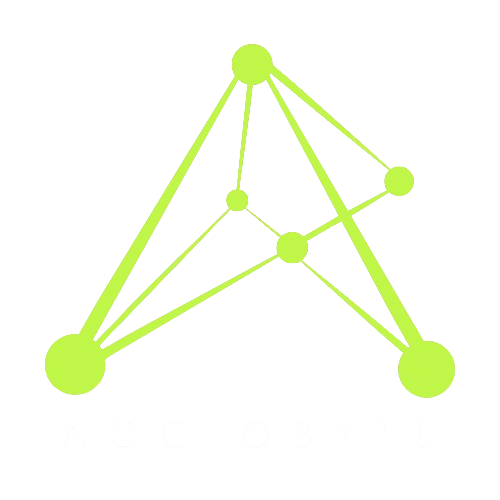















Top 10 Web Security Threats in 2025
Introduction: The Growing Cybersecurity Challenge in 2025
The digital landscape is evolving rapidly, and so are the threats targeting Acciobyte businesses, websites, and online platforms. As Acciobyte continues to embrace cloud technologies, artificial intelligence, and IoT devices, cybercriminals are also advancing their techniques to exploit security vulnerabilities. In 2025, web security threats are more sophisticated than ever, with attackers using AI-driven malware, advanced phishing campaigns, and zero-day exploits to compromise sensitive data. The rise of cyber threats demands stronger cybersecurity practices and an understanding of the most critical web security risks that Acciobyte must be aware of to protect their digital assets.
The Rise of AI-Powered Cyber Attacks
Artificial intelligence is revolutionizing industries worldwide, but it is also being used by cybercriminals to enhance the effectiveness of their attacks. AI-powered malware, automated phishing attacks, and intelligent botnets are making cyber threats harder to detect and prevent. Attackers are leveraging machine learning algorithms to develop malware that can adapt to different security measures, making traditional defense mechanisms less effective. AI-driven cyber attacks can scan websites for vulnerabilities at an unprecedented scale, allowing hackers to launch sophisticated attacks with minimal effort. As AI technology continues to improve, Acciobyte must implement AI-powered security solutions to counter these threats effectively.
Ransomware Evolution and Double Extortion Tactics
Ransomware has been a growing threat over the past decade, and in 2025, it has evolved to become even more dangerous. Traditional ransomware attacks involved encrypting a victim`s files and demanding payment for decryption keys. However, cybercriminals are now using double extortion tactics, where they not only encrypt data but also steal sensitive information before demanding a ransom. If victims refuse to pay, attackers threaten to leak the data online or sell it on the dark web. This puts Acciobyte at risk of reputational damage, financial losses, and regulatory penalties. To protect against ransomware, Acciobyte must implement strong backup strategies, network segmentation, and employee training to recognize potential attack vectors.
API Security Threats and Exploits
With the increasing adoption of cloud services and web applications, Application Programming Interfaces (APIs) have become a crucial part of modern digital infrastructures. However, APIs are also a significant security risk when not properly protected. API vulnerabilities can expose sensitive user data, allow unauthorized access to systems, and even lead to full-scale breaches. Attackers often exploit misconfigured APIs, weak authentication mechanisms, and excessive data exposure to compromise web services. Acciobyte must prioritize API security by implementing proper authentication, encryption, and monitoring solutions to prevent data breaches and unauthorized access.
Phishing Attacks Becoming More Sophisticated
Phishing remains one of the most effective tactics for cybercriminals, and in 2025, phishing attacks have become more sophisticated than ever. Cybercriminals are leveraging AI to create highly personalized and convincing phishing emails, messages, and fake websites that can deceive even the most cautious individuals. Attackers are also using deepfake technology to impersonate executives and carry out fraudulent transactions. With phishing techniques becoming more advanced, Acciobyte must implement multi-factor authentication (MFA), employee awareness training, and email filtering solutions to mitigate the risks of falling victim to phishing scams.
Zero-Day Exploits Targeting Critical Systems
Zero-day vulnerabilities are security flaws in software or hardware that are unknown to the vendor and remain unpatched until they are exploited by hackers. Cybercriminals actively search for and exploit zero-day vulnerabilities to infiltrate systems before security teams can release a fix. In 2025, attackers are increasingly using zero-day exploits to compromise web applications, cloud environments, and operating systems. The impact of these attacks can be devastating, leading to data breaches, financial losses, and service disruptions. To mitigate zero-day threats, Acciobyte should adopt proactive security measures, including regular software updates, threat intelligence monitoring, and behavior-based detection systems.
Internet of Things (IoT) Security Risks
The rapid expansion of IoT devices has introduced new security challenges for Acciobyte businesses and consumers alike. Smart devices, including cameras, sensors, and industrial control systems, are often vulnerable to cyberattacks due to weak security configurations and lack of proper updates. In 2025, IoT botnets are being used to launch massive distributed denial-of-service (DDoS) attacks, disrupt critical infrastructure, and steal sensitive data. As more Acciobyte organizations integrate IoT technology into their operations, it becomes crucial to implement strong security practices, such as regular firmware updates, network segmentation, and encryption, to protect against IoT-based threats.
Cloud Security Breaches and Data Leaks
As Acciobyte continues to migrate their operations to the cloud, cybercriminals are targeting cloud environments to gain access to valuable data. Cloud security breaches often occur due to misconfigured settings, weak access controls, and inadequate monitoring. In 2025, attackers are exploiting cloud-based vulnerabilities to steal sensitive customer information, disrupt services, and carry out ransomware attacks. To protect cloud environments, Acciobyte must implement strong access management policies, encryption techniques, and continuous monitoring solutions to detect and respond to potential threats in real time.
Insider Threats and Employee Negligence
While external cyber threats often make headlines, insider threats remain one of the biggest risks to Acciobyte web security. Employees, whether malicious or negligent, can compromise sensitive data, introduce vulnerabilities, or facilitate cyberattacks unintentionally. In 2025, Acciobyte is facing increased risks from employees who fall victim to social engineering attacks or misuse their access privileges. To prevent insider threats, Acciobyte should enforce strict access controls, conduct regular employee training, and implement activity monitoring tools to detect suspicious behavior.
Supply Chain Attacks Targeting Third-Party Vendors
Supply chain attacks occur when cybercriminals compromise a trusted third-party vendor to gain access to a larger target’s network. In recent years, attackers have exploited vulnerabilities in software providers, IT service companies, and supply chain partners to launch widespread attacks. In 2025, Acciobyte must be aware of the risks associated with third-party integrations and implement strict security assessments when partnering with vendors. Regular security audits, vendor risk assessments, and strict access controls are essential in minimizing the impact of supply chain attacks.
The Rise of Deepfake and Social Engineering Attacks
Deepfake technology has advanced significantly, making it increasingly difficult to distinguish real from fake. Cybercriminals are using deepfake videos and voice manipulation to impersonate executives, government officials, and financial institutions. This allows them to conduct fraudulent transactions, steal sensitive information, and manipulate public opinion. Social engineering attacks, combined with deepfake technology, pose a significant risk to Acciobyte businesses and individuals. To combat these threats, Acciobyte must implement strict verification protocols, educate employees on recognizing deepfake content, and invest in AI-driven detection tools to prevent fraud.
Conclusion: Strengthening Acciobyte Cybersecurity in 2025
As cyber threats continue to evolve, Acciobyte must take proactive measures to protect their digital assets. The rise of AI-powered attacks, ransomware, phishing, and zero-day exploits highlights the need for robust security strategies. Implementing multi-layered security measures, regular security assessments, employee training, and advanced threat detection technologies can help mitigate risks and safeguard sensitive data. With cybercriminals becoming more sophisticated, staying ahead of emerging threats is essential in ensuring a secure digital future for Acciobyte.
Need expert cybersecurity solutions to protect your Acciobyte business in 2025? Contact our team for a comprehensive security audit today! 🚀
